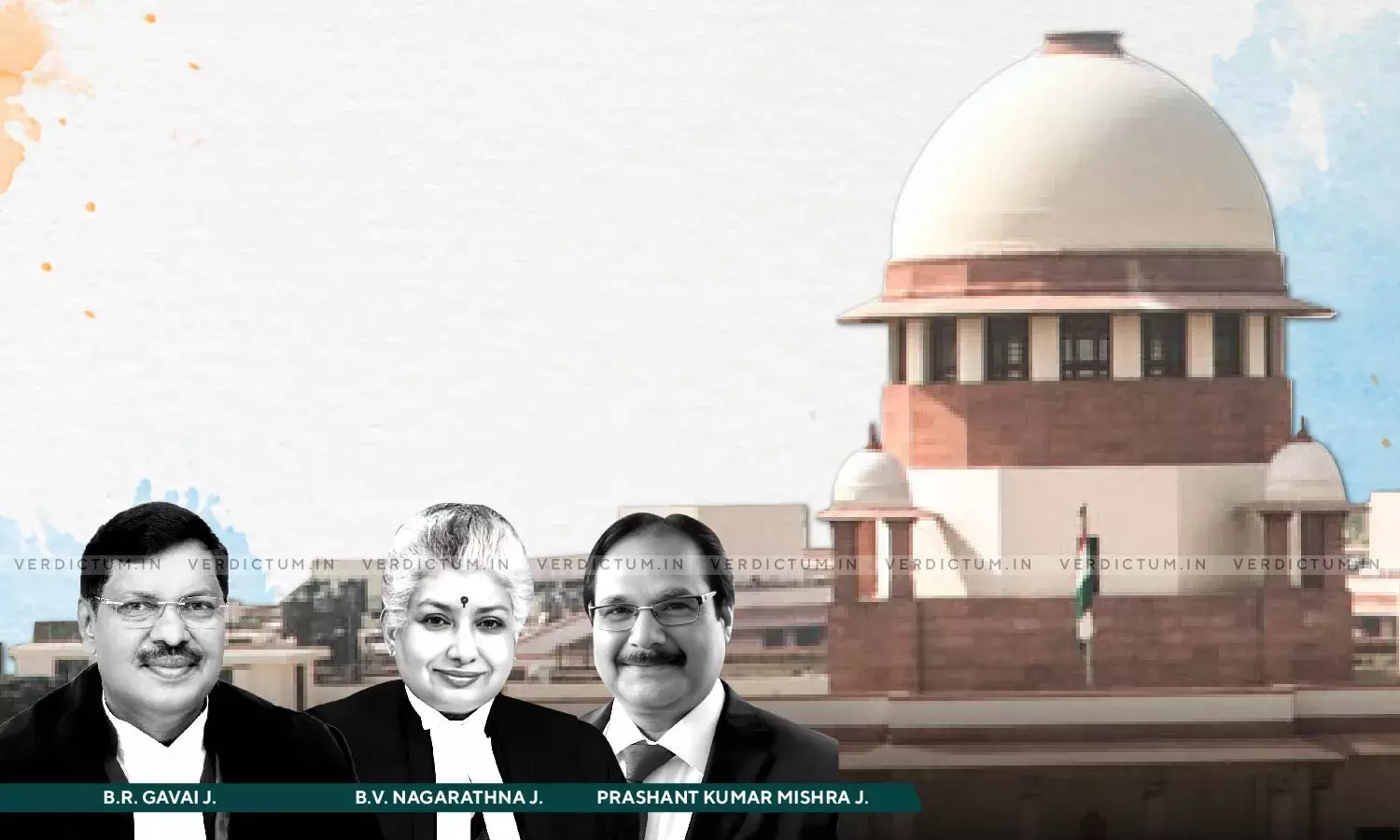Not Necessary That Every Person Constituting Unlawful Assembly Must Play Active Role For Conviction U/s. 149 IPC: Supreme Court
The Supreme Court reiterated that it is not necessary that every person constituting unlawful assembly must play active role for conviction under Section 149 of the Indian Penal Code (IPC).
The Court was dealing with appeals against the judgment of the Madhya Pradesh High Court whereby it had upheld the judgment of the Trial Court convicting the appellants and sentencing them to imprisonment for life for the offences punishable under Section 302 read with Section 149 of IPC.
The three-Judge Bench comprising Justice B.R. Gavai, Justice B.V. Nagarathna, and Justice Prashant Kumar Mishra observed, “It could thus clearly be seen that the Constitution Bench has held that it is not necessary that every person constituting an unlawful assembly must play an active role for convicting him with the aid of Section 149 of IPC. What has to be established by the prosecution is that a person has to be a member of an unlawful assembly, i.e. he has to be one of the persons constituting the assembly and that he had entertained the common object along with the other members of the assembly, as defined under Section 141 of IPC.”
Senior Advocate A. Sirajudeen and Advocate Rishi Malhotra appeared on behalf of the appellants while Advocate Abhimanyu Singh appeared on behalf of the respondents.
Factual Background -
The appellant had constructed a shed (taparia) on the passage of the village used by the cattle and since the said shed was damaged by a buffalo belonging to the complainant party and hence, the appellant had beaten the buffalo with lathi and drove it away. Thereafter, the appellant along with other accused persons came to the house of one man and seeing this, he ran away from the house out of fear. Then the accused persons broke the doors, entered the house, beat three persons, and fled from there.
Furthermore, when the complainant party were going on a tractor to the Police Station to lodge the complaint, the accused persons armed with lethal weapons like barchi, sword, lathi, and country-made bomb (hathgola) waylaid them to cause injuries. During this, grievous injuries were caused and hence, an FIR was registered for the offences under Sections 307, 323, 452, 148, and 149 of the IPC. Accordingly, the Trial Court convicted the accused persons and thereafter, the High Court affirmed its judgment. Hence, the matter was before the Apex Court.
The Supreme Court in view of the facts and circumstances of the case noted, “… it is clear that the present appellants were members of the unlawful assembly. No doubt that there is no specific role attributed to the present appellants of assaulting the deceased Madan. However, since the appellants were members of the unlawful assembly, in view of the law laid down by this Court in the case of Masalti (supra), it is not necessary that such a person, for being convicted, must have actually assaulted the deceased.”
The Court said that there was a free fight resulting in injuries to the members of both the parties and unfortunately deceased succumbing to the injuries. It further said that the witnesses were interested witnesses, the injuries sustained by three accused persons are not at all explained.
“Non-explanation of injuries on the persons of the accused would create a doubt, as to, whether, the prosecution has brought on record the real genesis of the incident or not. Undisputedly, as observed hereinabove, a cross case was also registered against the complainant party for the injuries sustained by the accused persons”, also noted the Court.
The Court concluded that it is also not clear as to whether the common object of the unlawful assembly was to cause the death of the deceased or not and therefore, the appellants are entitled to benefit of doubt.
Accordingly, the Apex Court disposed of the appeals, altered the conviction under Section 302 IPC to Part-II of Section 304 IPC, and sentenced the appellants to suffer rigorous imprisonment for 7 years.
Cause Title- Parshuram v. State of M.P. (Neutral Citation: 2023 INSC 973)




